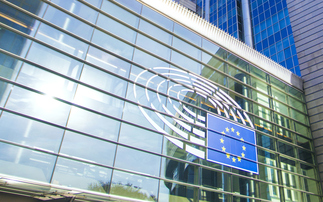How will the outcome of Paris affect two of the world economy's most important sectors, shipping and aviation?
If new international emissions policies and targets could drive the development of lower carbon forms of shipping and aviation, it is the prospect of climate-based taxation that promises to really shake up the twin industries. One option in the draft text is for the ICAO and IMO to develop a levy scheme that will provide cash for an international Adaptation Fund, which would be used to fund climate mitigation projects around the world.
Both industries are very, very reluctant to be singled out for a climate levy. The ICAO expressed "clear concerns" to BusinessGreen over the proposal to make aviation pay a levy, saying that "international aviation should not be targeted as a source of general revenue in a disproportionate manner".
Most of the shipping industry is equally opposed to the idea. The ICS warns against treating the industry as a "cash cow", saying it will be "lobbying hard" in the run-up to the summit to persuade governments to drop the idea of a levy.
"Ship owners are not turkeys, they don't volunteer for Christmas," says Bennett. "No one volunteers to pay money they don't need to pay." However, if a levy is imposed, there is a preference for a fuel levy over another kind of market-based measure such as an emissions trading scheme, he says.
Some experts argue that a fuel levy on shipping and aviation would actually be a rather fair way to raise cash for the Adaptation Fund. WWF's Beard believes the levy clause is a very positive element of the draft text, saying it represents a "big opportunity to mobilise finance" for climate adaptation and mitigation. Aviation is an industry that "generally doesn't pay as much tax as others, and is generally used by wealthier people in wealthier countries," he says. Meanwhile, shipping firms currently don't pay any tax on their fuel, leaving some commentators to suggest maybe it is time for it to start paying its fair share.
We don't know exactly what the IMO and ICAO's carbon-cutting plans will look like until they are officially announced next year. But right now, we can be sure both organisations are keeping a close eye on the progress of COP21 negotiations, using the summit to gauge the level of ambition needed for their own emissions reduction plans.
This is a potentially risky waiting game, says UCL's Smith. While confidence for the summit keeps building, it is driving the ICAO, IMO and industry representatives to start to act on carbon emissions. But if the summit is an environmental washout, all the pressure on shipping and aviation will trickle away, he warns. "If there isn't a perceived threat of UNFCCC action, if there's another meeting like Copenhagen, then you very easily create an atmosphere in an organisation where there are lots of excuses not to do anything," he says.
Confidence is certainly mounting for a global deal at Paris. But a lot can happen before the summit - the draft text is still not final, and any mentions of shipping or aviation may still be slashed from the agreement at the next round of talks in Bonn.
But with or without those specific clauses, a strong agreement to curb global emissions will keep the pressure up on ICAO and IMO to deliver on aviation and shipping's carbon reduction promises and deliver the strong international policies needed to do so. Who knows, it may even inspire them to go the extra mile in their journey to decarbonisation.
This article is part of BusinessGreen's Road to Paris hub, hosted in association with PwC










